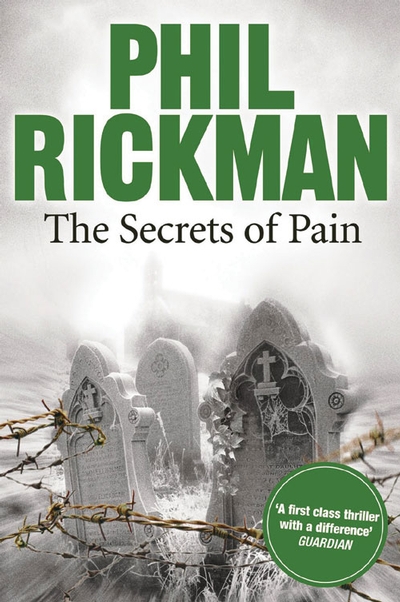 The Secrets of Pain by Phil Rickman (Corvus)
The Secrets of Pain by Phil Rickman (Corvus)
Is it possible that thrillers are less good than they used to be? Because either they or I, or possibly both of us, have changed. As a teenager, I read literally nothing but murder mysteries and thrillers (homework excepted). My bookshelves still heave under the weight of piles of Scandinavian noir, just waiting for me to finish reading all the books I need for work, before I can treat myself to a murder in the snow.
And yet, when the moment comes for me to read a brand-new thriller, I find myself repeatedly and increasingly disappointed. Last year, I agreed to help judge a prize for the Harrogate Crime Writing Festival, assuming that all my secular Christmases were about to come at once: reading murder mysteries and being allowed to call it work. But the majority of the entrants were desperately flabby and underwritten. The characters were thin and charmless, the pacing was leaden, and the plots were holier than either emmental or the pope.
So, perhaps I shouldn’t be surprised that Phil Rickman’s books about a crime-solving lady vicar going by the unlikely name of Merrily Watkins have somehow passed me by. If I’m completely honest, naming a protagonist after an adverb is always an off-putting choice to me. And plenty of other characters seem to be have been christened with equal perversity – Merrily’s boyfriend is a folk musician called Lol, the male police officer in charge of the case is Frannie, and at one point a woman named Gus Staines appears. I can only assume that was put in for a bet, but the overall effect was that much of the book whizzed by me in a transgendered blur.
But, in fairness, The Secrets of Pain is the eleventh book in the series, and that is probably not the best place to start. People who’ve been in the mix since book one have probably established who the regular characters are, and can keep track of whether they are men or women. And Rickman obviously has numerous fans – no one writes 11 books in a series unless people are buying them.
Perhaps my problem is that I just don’t believe in possession and evil and the forces of darkness (which makes The Exorcist rather a dull watch too). And while I do believe in vicars, I don’t think I believe that many of them would respond to a disturbing story with the expletive “Jesus”. Taking the Lord’s name in vain is something generally frowned upon in their line of work, even when you have come across a ex-SAS man practising Mithraism on the Welsh borders.
Perhaps mindful of the fact that Dan Brown didn’t lose any money by seemingly discovering a hidden pseudo-Christian cult that had been secretly flourishing beneath our notice for centuries, Rickman has revived the Persian god Mithras for his novel. A fiercely masculine cult, popular with Roman soldiers, Mithraism certainly reached Britain – there’s a Mithraic temple in central London, and another on Hadrian’s Wall.
But the extra leap in this supernatural thriller (that pursuing Mithraism might turn on a blood-lust you can’t turn off) just doesn’t cut it, though I rather liked the idea of tying it to those awful team-building weekends that business execs apparently go on (I always want to call them outward bound courses, in a rather condescending tone, but that just goes to prove that I have no team spirit).
This is a silly book with no pretensions to be anything else, and if it came in at 300 pages, rather than a whopping 576, I would have enjoyed it far more. But altogether too many modern thrillers seem to be written for the length rather than the quality, and this is no exception.

